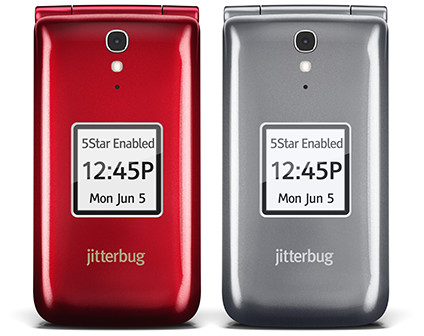Some of the Best Phones and Apps for the Elderly
For various reasons, many seniors have been left behind with regard to the digital revolution. They never could get those clocks to stop flashing 12:00. Then they had to figure out how to turn on a computer, and why was important to do so. After that, the internet. And now we have the smartphone, a bridge too far for many seniors.
They see the modern smartphone as yet another unhealthy obsession. They are deeply suspicious of any technology so apparently addictive. They push back by not having anything to do with it.
Being on fixed incomes, many seniors have a hard time understanding the value proposition. They know what a phone is because they have used one all their lives - a cheap one. They can hardly imagine how the experience is improved by spending hundreds of dollars on a handset that has to be charged every day.
There is also a matter of trust, they do their banking in person, not on a pocket computer with who knows who’s on the other end. Their friends are people they talk to, not people they text to. Smartphones represent one of the biggest hurdles to overcome in the age of the digital divide along generational lines.
If you know a senior who has just purchased a smartphone and is struggling to figure it out, here are some things you can suggest by way of helpful advice:
Pick a Different Phone
Sometimes the problem is the phone and not the person. If a senior in your life is having trouble getting their head around their new smartphone, it may just be that they have the wrong phone. Take advantage of the return policy. And get them something they will be able to figure out more easily.
Sometimes the smartest phone choice is not a smartphone at all. It may be something more like the Jitterbug phones you have heard of that offer basic functionality for seniors. This type of phone usually has large, easy to read numbers, as loud earpiece and speaker that is also compatible with hearing aids, and bright screens with clear information that makes navigation a simpler task.
So before you give an elderly the latest and greatest Android phone, you have to ask yourself if you are doing what’s best for them, or what’s best for you. Consider the possibility that a smartphone is not a smart choice for them.
Apps that Help
If they do get a smartphone, help them find apps that will help them, not nearly entertain them. You don’t have to be a senior to need a little help remembering things. But if the senior in your life does need a little help remembering things like when to take which pills, appointments, and special events, There are apps for that. You can even find apps specifically to help those with Alzheimer’s disease.
If their vision is a problem such that they have a hard time reading mail, there are apps for the visually impaired such as KNFB Reader that do automatic scanning and OCR function, combining it with a speech engine that reads processed text aloud. Make sure they know that smartphones can be helpful and not just fun.
Social Media
When it comes to apps and the elderly, the category people tend to forget about is social media. Staying socially active can literally prolong one’s life. Because seniors tend not to get out as much, a social media outlet such as Facebook can help them stay in touch with the people from their past and present.
They might also enjoy Instagram for sharing photos. Not only will they enjoy looking at the photos from their friends, but it might even inspire them to get out and take more pictures. Whatever smartphone they have, the camera is sure to be excellent. If they are interested in keeping up with the news, Twitter may be a good choice for them.
For some, the right choice is not a smartphone at all. For the others, the perfect smartphone is the one that can help them with tasks such as remembering and reading, and one that will help them stay social.
